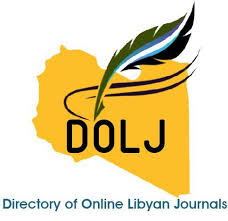Effect of supplementary folic acidintake for pregnant women on the newborn birthweight
DOI:
https://doi.org/10.54361/ljmr15.1.04Keywords:
Folic acid, pregnant woman, birthweightAbstract
Back ground During pregnancy the woman needs a good nutritional status for a healthy outcome. Poor nutritional statuses cause higher risks of malnutritional diseases and deaths for women and their embryos. Folic acid deficiency negatively affects pregnancy outcomes due to its association with DNA synthesis, and since the folic acid intake during pregnancy plays a significant role in modulating gene expression, the dose and its timing during pregnancy may be critical. This study The study was designed to investigate the effect of folic acid on pregnancy. A total of 92 pregnant women participated in this study. These pregnant women were classified into 3 groups according to their ages (20 – 30 years, 31 – 41years, and above 40years). The three groups were examined through a questionnaire that has to be answered by the pregnant women themselves. Result The majority of woman were among the first age group (20- 30 years), whereas the highest percentage of diabetic women were in the last group (above 41 years). Birthweights were higher if the woman who took folic acid during pregnancy especially if they were diabetic. In fact, diabetic women that did not take folic acid during pregnancy had the lowest birthweights compared to all other groups. Conclusion The data suggested that taking folic acid supplementation helps in developing the fetus and thus the newborn baby will have a normal birthweight. Diabetic women showed that the average birthweights of their newborn babies were higher than the normal when they took folic acid and lower than normal in the absence of the supplementary folic acid.
Downloads
References
Nutrition of women in the preconception period, during pregnancy and the breastfeeding period (WHO-2012)
Salvador Villalpando. Effects of folate and vitamin B12 deficiencies during pregnancy on fetal, infant, and child development. 2008. Food and Nutrition Bulletin, vol. 29, no. 2
Wallingford JB, Niswander LA, Shaw GM, Finnell RH: The continuing challenge of understanding, preventing, and treating neural tube defects. Science 2013, 339:1222002.
SubitBarua*, Salomon Kuizon and Mohammed A Junaid. Folic acid supplementation in pregnancy and implications in health and disease. Journal of Biomedical Science 2014, 21:77
Pitkin RM: Folate and neural tube defects. Am J ClinNutr 2007, 85:285S–288S.
Callender STE: A critical review of pernicious anaemia of pregnancy. Q J Med 1944, 13:75– 105.
Rosati R, Ma H, Cabelof DC: Folate and colorectal cancer in rodents: a model of DNA repair deficiency. J Oncol 2012:105949.
De Regil LM, Fernandez-Gaxiola AC, Dowswell T, Pena-Rosas JP: Effects and safety of periconceptional folate supplementation for preventing birth defects. Cochrane Database Syst Rev 2010, CD007950.
Milunsky A, Jick H, Jick SS, et al. Multivitamin/folic acid supplementation in early pregnancy reduces the prevalence of neural tube defects. JAMA. 1989 Nov 24;262(20):2847-52. PMID: 2478730.
Moore LL, Bradlee ML, Singer MR, et al. Folate intake and the risk of neural tube defects: an estimation of dose-response. Epidemiology. 2003 Mar;14(2):200-5. PMID: 12606886. 9
Centers for Disease Control and Prevention (CDC). CDC Grand Rounds: additional opportunities to prevent neural tube defects with folic acid fortification. MMWR Morb Mortal Wkly Rep. 2010 Aug 13;59(31):980-4. PMID: 20703205
Stoltenberg C. Effects of periconceptional folate on language delay and autism spectrum disorders: The Norwegian mother and child cohort study. Neuropsychopharmacology. 2013;38:S38.
Downloads
Published
Issue
Section
License
Copyright (c) 2021 Abdalla A. Mohamed, Taher Abd elhameed, Wayel Almrabet, Altayeb Elazomi, Elhadi Araibi, Fawzia Shawesh, Nada alzubadi, Salah Bahroun, Khaled Aburass, Abd elkarim Abdalla (Author)

This work is licensed under a Creative Commons Attribution-NonCommercial-NoDerivatives 4.0 International License.
Open Access Policy
Libyan journal of medical Research (LJMR).is an open journal, therefore there are no fees required for downloading any publication from the journal website by authors, readers, and institution.
The journal applies the license of CC BY (a Creative Commons Attribution 4.0 International license). This license allows authors to keep ownership f the copyright of their papers. But this license permits any user to download , print out, extract, reuse, archive, and distribute the article, so long as appropriate credit is given to the authors and the source of the work.
The license ensures that the article will be available as widely as possible and that the article can be included in any scientific archive.
Editorial Policy
The publication of an article in a peer reviewed journal is an essential model for Libyan journal of medical Research (LJMR). It is necessary to agree upon standards of expected ethical behavior for all parties involved in the act of publishing: the author, the journal editorial, the peer reviewer and the publisher.
Any manuscript or substantial parts of it, submitted to the journal must not be under consideration by any other journal. In general, the manuscript should not have already been published in any journal or other citable form, although it may have been deposited on a preprint server. Authors are required to ensure that no material submitted as part of a manuscript infringes existing copyrights, or the rights of a third party.
Authorship Policy
The manuscript authorship should be limited to those who have made a significant contribution and intellectual input to the research submitted to the journal, including design, performance, interpretation of the reported study, and writing the manuscript. All those who have made significant contributions should be listed as co-authors.
Others who have participated in certain substantive aspects of the manuscript but without intellectual input should only be recognized in the acknowledgements section of the manuscript. Also, one of the authors should be selected as the corresponding author to communicate with the journal and approve the final version of the manuscript for publication in the LJMR.
Peer-review Policy
- All the manuscripts submitted to LJMR will be subjected to the double-blinded peer-review process;
- The manuscript will be reviewed by two suitable experts in the respective subject area.
- Reports of all the reviewers will be considered while deciding on acceptance/revision or rejection of a manuscript.
- Editor-In-Chief will make the final decision, based on the reviewer’s comments.
- Editor-In-Chief can ask one or more advisory board members for their suggestions upon a manuscript, before making the final decision.
- Associate editor and review editors provide administrative support to maintain the integrity of the peer-review process.
- In case, authors challenge the editor’s negative decision with suitable arguments, the manuscript can be sent to one more reviewer and the final decision will be made based upon his recommendations.














